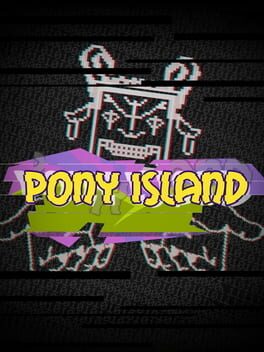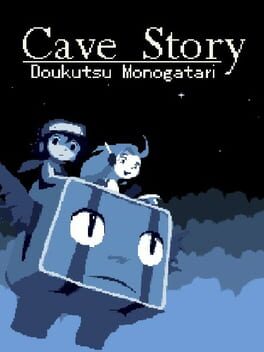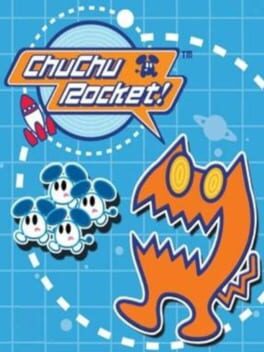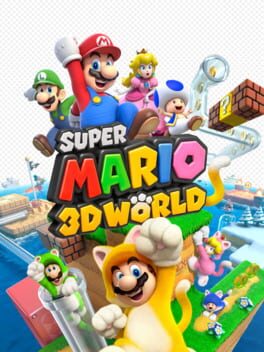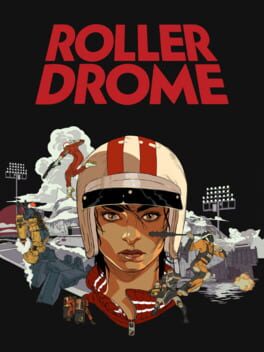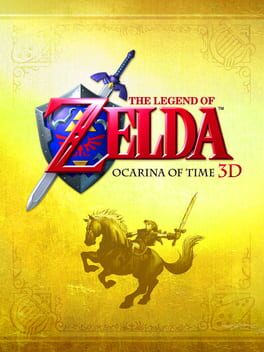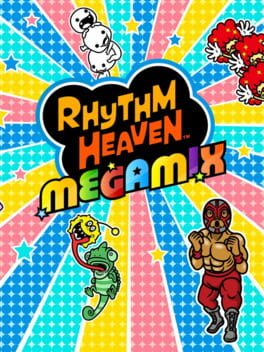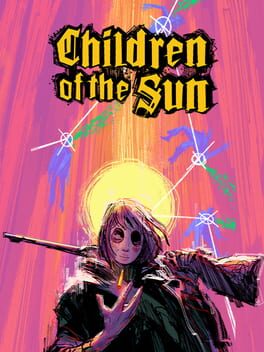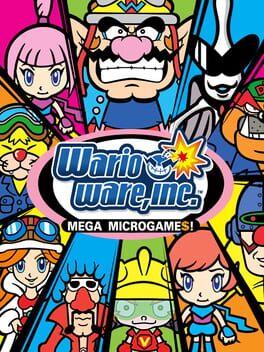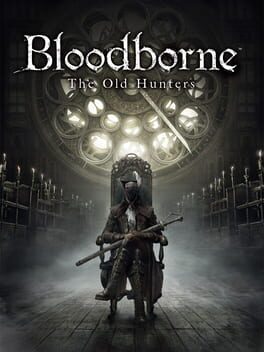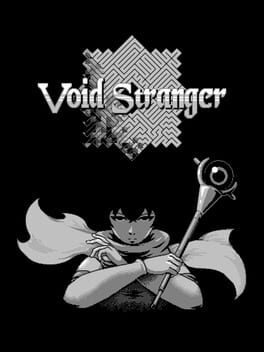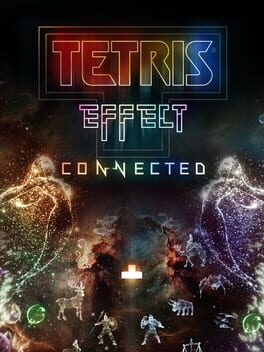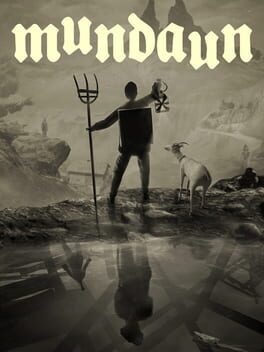antoinebeaumal
BACKER
2016
This is 3 tricks pony: a buggy “endless runner, a glitchy puzzle game and a meta adventure. More than just a 'meta' commentary on what a video game is, I feel like the game pays homage to the flash games of the early 2000s. It plays quickly, and even though some phases may feel a bit redundant (the puzzle part, in my opinion), the game doesn't lack charm or ideas.
2004
I'm glad I took the time on the OG of indie plateformer. Totally impressed by the fact that it's the sole creation of one man: what generosity. Like any great game, Cave Story has several layers that one discovers gradually, making the experience truly unique.
Layer 1: 'Wow, charming graphics and incredible music.'
Layer 2: 'Very good gameplay, the progression of armor and upgrades is really well thought out.'
Layer 3: 'Ah, but the level design works like a metroidvania.'
Layer 4: 'The bosses are really interesting and sometimes really brutal.'
Layer 5: 'There are really a lot of secret areas and parallel quests.'
Layer 6: 'The story is really gripping and it seems like my choices have consequences.'
Layer 7: 'Oh no :( this part is sad. In fact, I'm really attached to the characters.'
Layer 8: 'Okay, 4 end boss phases and I only got the easy ending?'
In short, I feel like I've only scratched the surface of this great game.
Layer 1: 'Wow, charming graphics and incredible music.'
Layer 2: 'Very good gameplay, the progression of armor and upgrades is really well thought out.'
Layer 3: 'Ah, but the level design works like a metroidvania.'
Layer 4: 'The bosses are really interesting and sometimes really brutal.'
Layer 5: 'There are really a lot of secret areas and parallel quests.'
Layer 6: 'The story is really gripping and it seems like my choices have consequences.'
Layer 7: 'Oh no :( this part is sad. In fact, I'm really attached to the characters.'
Layer 8: 'Okay, 4 end boss phases and I only got the easy ending?'
In short, I feel like I've only scratched the surface of this great game.
1999
Similar to Fantavision (a fireworks game released on the day of the PS2 launch), Chuchurocket is somewhat of an oddity: a puzzle game with very simple graphics that doesn't fully utilize the power of the new console.
Although I'm usually a fan of this genre of puzzle games, I find that Chuchu Rocket lacks depth in its gameplay, which seems to be identical from level 1 to 100. Regardless of the level, the mice move in straight lines, turning right when they hit a wall. There are two types of dangers: cats and voids. It's a bit lacking in terms of variety.
The difficulty is also strangely managed: sometimes too easy, sometimes challenging, but too often completely random; the levels progress with boredom. Nevertheless, I persisted in finishing this game because there's something fundamentally oddly satisfying about seeing these lines of little mice narrowly avoiding enemies
Hard to really recommend it
Although I'm usually a fan of this genre of puzzle games, I find that Chuchu Rocket lacks depth in its gameplay, which seems to be identical from level 1 to 100. Regardless of the level, the mice move in straight lines, turning right when they hit a wall. There are two types of dangers: cats and voids. It's a bit lacking in terms of variety.
The difficulty is also strangely managed: sometimes too easy, sometimes challenging, but too often completely random; the levels progress with boredom. Nevertheless, I persisted in finishing this game because there's something fundamentally oddly satisfying about seeing these lines of little mice narrowly avoiding enemies
Hard to really recommend it
2021
When 'comfort food' turns into 'fast food': quickly consumed, quickly forgotten. When you've put in the effort to play through Mario's 3D series from the beginning, one can't help but feel disappointed, especially when considering Super Mario 3D World as a follow-up to Super Mario Galaxy: the game feels quite conventional both in its physics, its movement possibilities, and its level design.
I'd almost venture to say it's more of a Mario 2.5D, given how the camera remains predominantly fixed (sometimes offering a choice of 3 viewing angles, and that's it). I can't quite find the words, but it feels like a detachment from the character, creating less immersion.
It also seems like the first game where Nintendo is recycling ideas rather than introducing new ones. Aside from the multiplayer mode (which I haven't tried) and the integration of the Wiiverse (RIP), the game revisits worlds and themes that are overly familiar. It appears to rely on gimmicks rather than innovative ideas. The cat suit is a prime example: it's amusing, it looks nice on the game cover, but in reality, it detracts from the gameplay because it's too overpowered. You end up wanting to have it all the time, which is a shame for other power-ups.
Regarding bosses, even though I know it's not Mario's strong suit, the simplification here seems somewhat absurd. In fact, it feels like the game almost abandons the concept of bosses altogether, turning the Bowser cat phase (final boss) into essentially a platforming segment. They didn't even try.
Now, it's evident that this game has clear strengths, particularly in its accessibility (it could be the ideal first Mario game), its vibrant graphics, and its music. It's from the perspective of considering Super Mario 3D World as a sequel to Mario Galaxy (Super Mario Gravity, I'm counting on you) that I was disappointed.
I'd almost venture to say it's more of a Mario 2.5D, given how the camera remains predominantly fixed (sometimes offering a choice of 3 viewing angles, and that's it). I can't quite find the words, but it feels like a detachment from the character, creating less immersion.
It also seems like the first game where Nintendo is recycling ideas rather than introducing new ones. Aside from the multiplayer mode (which I haven't tried) and the integration of the Wiiverse (RIP), the game revisits worlds and themes that are overly familiar. It appears to rely on gimmicks rather than innovative ideas. The cat suit is a prime example: it's amusing, it looks nice on the game cover, but in reality, it detracts from the gameplay because it's too overpowered. You end up wanting to have it all the time, which is a shame for other power-ups.
Regarding bosses, even though I know it's not Mario's strong suit, the simplification here seems somewhat absurd. In fact, it feels like the game almost abandons the concept of bosses altogether, turning the Bowser cat phase (final boss) into essentially a platforming segment. They didn't even try.
Now, it's evident that this game has clear strengths, particularly in its accessibility (it could be the ideal first Mario game), its vibrant graphics, and its music. It's from the perspective of considering Super Mario 3D World as a sequel to Mario Galaxy (Super Mario Gravity, I'm counting on you) that I was disappointed.
2022
The artistic direction of this game immediately caught my attention: a reinterpretation of 80s science fiction comic books in the style of "heavy metal." If I were pretentious, I would mention well-known illustrators, but my middle-class, uncultivated side means I only know this aesthetic through the "major boobage" episode of South Park released in 2008.
As has been said many times before, this game is a rare blend of genres: action gameplay with ranking like Devil May Cry, tricks and collectibles akin to Tony Hawk Pro Skater, and slow-motion action scenes reminiscent of Max Payne. Given its mixture of genres, the developers reached a compromise : no balance bar for slides and automatic aiming. Although the Tony Hawk Pro Skater player within me somewhat craves the thrill of endless sliding and the impossibility of crashing to the ground, the game would be even more challenging than it already is.
The career mode left me somewhat skeptical: what is the goal of Rollerdrome? To kill enemies as quickly as possible? To perform the most stylish tricks? To survive? To achieve a high score, one must do a bit of everything simultaneously, constantly being in a state of tension.
In my opinion, the game would benefit from focusing more on the survival aspect of its character. It seems absurd that, for example, one can successfully collect all 5 coins, die, and still have that objective achieved. Dying should be more punitive. As survival is not necessary for fulfilling objectives, players end up replaying the same arenas multiple times with the goal of completing different objectives each time. This fragmentation is detrimental to the career mode. Instead of simply rewarding the player who manages in one run to 1. Survive, 2. Kill efficiently, and 3. Perform the most tricks, it encourages players to choose between these three objectives, which is a shame.
However, I believe the game excels in progressing the player, introducing them to new playstyles. Players gradually learn new skills and the use of new weapons. The level objectives serve to advance us. Some may argue that the game guides the player too much, but in my opinion, Rollerdrome must cater to two types of players: those who want to complete the career mode and those completionists who aim for an "S" tier in every level. The developers have managed to accommodate both types of players quite well.
I often read that the game is "too short" and "doesn't fully exploit its potential." I partially agree. More than its short lifespan, it's the repetition that can become tiresome. For example, the first arena introduces 2 types of enemies (melee guy and sniper girl), the second introduces the rocket launcher guy, and so on. Each level adds a new enemy type on top of the previous ones. It's important to remember that this game was made by a small team of 44 people. The focus (and thankfully so) was on creating a unique gameplay mechanic. I prefer this to a game that lasts over 50 hours but recycles what has already been done in the past.
I really hope there will be a sequel or DLC for Rollerdrome. I would love to have more boss fights or even engage in a duel with an opponent.
As has been said many times before, this game is a rare blend of genres: action gameplay with ranking like Devil May Cry, tricks and collectibles akin to Tony Hawk Pro Skater, and slow-motion action scenes reminiscent of Max Payne. Given its mixture of genres, the developers reached a compromise : no balance bar for slides and automatic aiming. Although the Tony Hawk Pro Skater player within me somewhat craves the thrill of endless sliding and the impossibility of crashing to the ground, the game would be even more challenging than it already is.
The career mode left me somewhat skeptical: what is the goal of Rollerdrome? To kill enemies as quickly as possible? To perform the most stylish tricks? To survive? To achieve a high score, one must do a bit of everything simultaneously, constantly being in a state of tension.
In my opinion, the game would benefit from focusing more on the survival aspect of its character. It seems absurd that, for example, one can successfully collect all 5 coins, die, and still have that objective achieved. Dying should be more punitive. As survival is not necessary for fulfilling objectives, players end up replaying the same arenas multiple times with the goal of completing different objectives each time. This fragmentation is detrimental to the career mode. Instead of simply rewarding the player who manages in one run to 1. Survive, 2. Kill efficiently, and 3. Perform the most tricks, it encourages players to choose between these three objectives, which is a shame.
However, I believe the game excels in progressing the player, introducing them to new playstyles. Players gradually learn new skills and the use of new weapons. The level objectives serve to advance us. Some may argue that the game guides the player too much, but in my opinion, Rollerdrome must cater to two types of players: those who want to complete the career mode and those completionists who aim for an "S" tier in every level. The developers have managed to accommodate both types of players quite well.
I often read that the game is "too short" and "doesn't fully exploit its potential." I partially agree. More than its short lifespan, it's the repetition that can become tiresome. For example, the first arena introduces 2 types of enemies (melee guy and sniper girl), the second introduces the rocket launcher guy, and so on. Each level adds a new enemy type on top of the previous ones. It's important to remember that this game was made by a small team of 44 people. The focus (and thankfully so) was on creating a unique gameplay mechanic. I prefer this to a game that lasts over 50 hours but recycles what has already been done in the past.
I really hope there will be a sequel or DLC for Rollerdrome. I would love to have more boss fights or even engage in a duel with an opponent.
2017
I spent 10 hours in the game to come to the conclusion that OOT is amazing but that I won't be able to fully appreciate it by playing it 'handheld' on the 3DS. The immersion doesn't quite work for me, especially in the dungeons where I find the game's readability difficult on such a small screen. I imagine that if you've played the original, playing it in handheld mode is a pleasant extension of the experience, a way to rediscover it. In my case, I would just like to experience it in a way close to the original experience (if such a thing exists). Like a good snob, I think I'll play it on the original hardware at 20 fps.
I've always had a penchant for games based on 'mini-games.' RHM is a good compromise between a Wario Ware and a musical game like 'Dance Dance Revolution' or even 'Guitar Hero.'
I have also a certain admiration for developers who create a particular world, characters, game rules, and even a tutorial so that the player ultimately spends less than 2 minutes there. Moreover, even though the scenery constantly changes (except for certain come-backs and remixes), we almost always do the same thing: learn via a tutorial 2 to 3 rhythm patterns that we execute directly afterward. Yet, this 'simple' mission is paradoxically very restful and calming. The further we advance in the mini-games, the more we learn to listen more attentively. The game demands a short but intense minute of attention. Fair enough. RHM falls into this category where one can (and should) play a maximum of 15 minutes per day, giving the illusion of progress in a domain (here, rhythm).
I was particularly a fan of the remix passages where different mini-games are mixed. There's an element of surprise that requires considerable responsiveness. I would have hoped for more moments like that.
However, this game has led me to deep reflections on video games in general. Is a good game, of action for example, not simply a game that is well-paced? a certain rhythm ? I firmly believe that a good game also necessarily has a good flow. RHM confirms the interesting thought of Matthew Matosis, who argues that Audio Cues are absolutely crucial in a good game as humans react more quickly to auditory stimuli than visual ones. Even if RHM is much simpler than a complex action game (here, pressing one button is enough in the majority of cases), this kind of game confirms this theory: a good game doesn't use audio cues as the 'moment to press the button' but as hints for an action that is about to happen. If you get into the 'flow,' you can react extremely precisely. A bad drummer looks at the metronome, the good one might just close his eyes.
Anyway, I'm glad I managed to finish the game at least. Who knows, it's likely that one day, old age will prevent me from playing this kind of game. Either because my hearing will be completely impaired, or because my arthritic hands won't be able to keep up with the pace.
"Okay grandpa, thanks for your theories, it's time to go to bed."
I have also a certain admiration for developers who create a particular world, characters, game rules, and even a tutorial so that the player ultimately spends less than 2 minutes there. Moreover, even though the scenery constantly changes (except for certain come-backs and remixes), we almost always do the same thing: learn via a tutorial 2 to 3 rhythm patterns that we execute directly afterward. Yet, this 'simple' mission is paradoxically very restful and calming. The further we advance in the mini-games, the more we learn to listen more attentively. The game demands a short but intense minute of attention. Fair enough. RHM falls into this category where one can (and should) play a maximum of 15 minutes per day, giving the illusion of progress in a domain (here, rhythm).
I was particularly a fan of the remix passages where different mini-games are mixed. There's an element of surprise that requires considerable responsiveness. I would have hoped for more moments like that.
However, this game has led me to deep reflections on video games in general. Is a good game, of action for example, not simply a game that is well-paced? a certain rhythm ? I firmly believe that a good game also necessarily has a good flow. RHM confirms the interesting thought of Matthew Matosis, who argues that Audio Cues are absolutely crucial in a good game as humans react more quickly to auditory stimuli than visual ones. Even if RHM is much simpler than a complex action game (here, pressing one button is enough in the majority of cases), this kind of game confirms this theory: a good game doesn't use audio cues as the 'moment to press the button' but as hints for an action that is about to happen. If you get into the 'flow,' you can react extremely precisely. A bad drummer looks at the metronome, the good one might just close his eyes.
Anyway, I'm glad I managed to finish the game at least. Who knows, it's likely that one day, old age will prevent me from playing this kind of game. Either because my hearing will be completely impaired, or because my arthritic hands won't be able to keep up with the pace.
"Okay grandpa, thanks for your theories, it's time to go to bed."
2024
Children of the Sun embodies everything I love and expect in an indie game: a strong aesthetic choice that perfectly complements unique gameplay. Nothing more, nothing less. Here, it's the story of a perfect revenge: a single bullet (well, per level) to take down a cult leader.
The artistic direction is truly successful: a goth girl lost in the middle of deep America, a story that is fragmented into short sequences, and an absolutely incredible sound atmosphere. Everything is played on instruments: the impact of the bullet is a cymbal crash, and the girl's movement is depicted with rapid notes on a guitar (probably baritone). I recommend to the to the musician (Adian Baker) behind the music and the sound ambiance. It's almost as heavy as the OST of the first season of True Detective or the theme of Tristram from Diablo 1.
It's especially the tightly knit (not to say limited) gameplay that adds to its appeal. Everything is played with the mouse only. Children of the Sun combines puzzle gaming with the adrenaline of a shooter. The satisfaction of finally finishing certain levels is incredible. The player's frustration is, in my opinion, perfectly managed: it's neither too easy nor too complicated. René Rother gradually introduces a gameplay grammar that builds up without ever becoming overwhelming. You gradually become a kind of psychopath scanning the sky for birds to explode, scrutinizing every car, and blowing up NPCs' vital parts.
About 6 hours of tension consumed in small slices. I hope for a sequel!
The artistic direction is truly successful: a goth girl lost in the middle of deep America, a story that is fragmented into short sequences, and an absolutely incredible sound atmosphere. Everything is played on instruments: the impact of the bullet is a cymbal crash, and the girl's movement is depicted with rapid notes on a guitar (probably baritone). I recommend to the to the musician (Adian Baker) behind the music and the sound ambiance. It's almost as heavy as the OST of the first season of True Detective or the theme of Tristram from Diablo 1.
It's especially the tightly knit (not to say limited) gameplay that adds to its appeal. Everything is played with the mouse only. Children of the Sun combines puzzle gaming with the adrenaline of a shooter. The satisfaction of finally finishing certain levels is incredible. The player's frustration is, in my opinion, perfectly managed: it's neither too easy nor too complicated. René Rother gradually introduces a gameplay grammar that builds up without ever becoming overwhelming. You gradually become a kind of psychopath scanning the sky for birds to explode, scrutinizing every car, and blowing up NPCs' vital parts.
About 6 hours of tension consumed in small slices. I hope for a sequel!
2023
2021
2020
